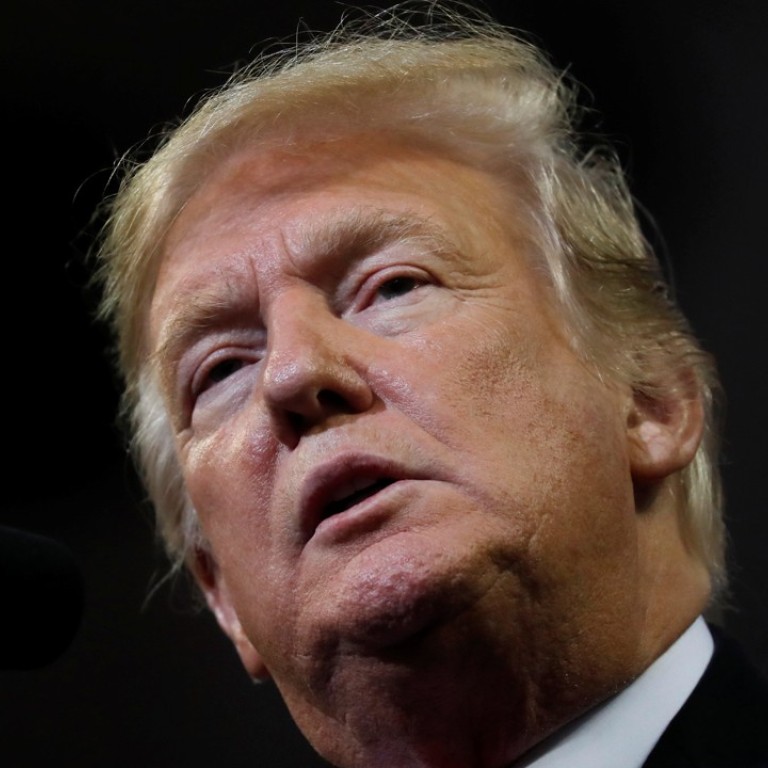
Donald Trump: China is not ready to make a deal to end trade war
US president insists Sino-US relations must be a two-way street before any deal is struck, after Chinese ambassador hinted his country would compromise
US President Donald Trump has said that China is not ready for a trade deal with the US and reiterated he was prepared to levy further tariffs against Beijing.
“China wants to make a deal, and I say they’re not ready yet,” Trump told reporters at the White House on Tuesday.
“I just say they’re not ready yet. And we’ve cancelled a couple of meetings because I say they’re not ready to make a deal.
“We can’t have a one-way street. It’s got to be a two-way street. It’s been a one-way street for 25 years. We’ve got to make it a two-way street. We’ve got to benefit also, OK?” said the president during his farewell meeting with Nikki Haley, the US ambassador to the UN who announced her resignation yesterday.
When asked if the United States was ready to impose more tariffs, Trump said: “Sure, absolutely.”
The unprecedented trade war between China and the US shows no obvious signs of ending, triggering fears that it will drag down global economic growth this year and in 2019.
The comments by Trump came days after the Chinese ambassador to the US said his country was “ready to make a deal” to end the dispute. “We are ready to make some compromise,” Cui Tiankai said in an interview with the Washington-based National Public Radio last Wednesday.
“The US position keeps changing all the time, so we don’t know exactly what the US would want as priorities.”
Cui said Beijing was willing to take steps to reduce the US’ trade deficit with China as well as to commit to reforming the Chinese economy, in which unfair trade practices including discriminatory subsidies for domestic industries have been among the major complaints by Trump. But Cui said the US needed to clarify what it wanted.
“We had some tentative agreement between the two working teams, then just overnight the tentative agreement was rejected and the demand from the US changed,” Cui said. “So this is very confusing.”
Beijing accused Washington of “holding a knife to our neck” to force trade concessions after the Trump administration announced tariffs in late September on an additional US$200 billion worth of Chinese goods, including televisions and toys. That meant about half of the products that Americans bought from China had an extra 10 per cent duty added.
In response, Beijing announced it would impose tariffs of 5 to 10 per cent on an additional US$60 billion of US goods, including meat and liquefied natural gas, and cancelled a planned delegation visit to Washington.
Trump had said that he was ready to impose tariffs on a further US$267 billion worth of imports “if China takes retaliatory action against our farmers or other industries”.

